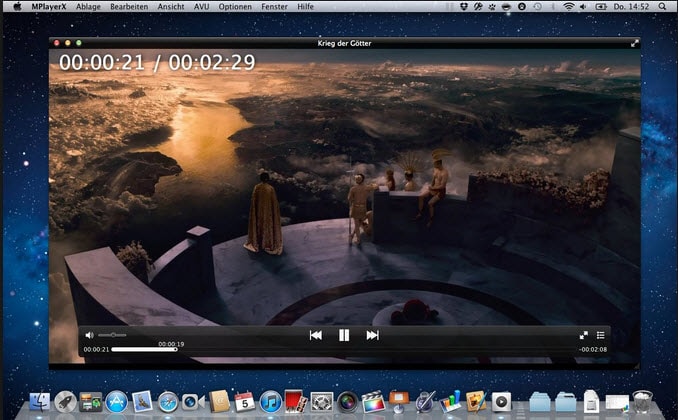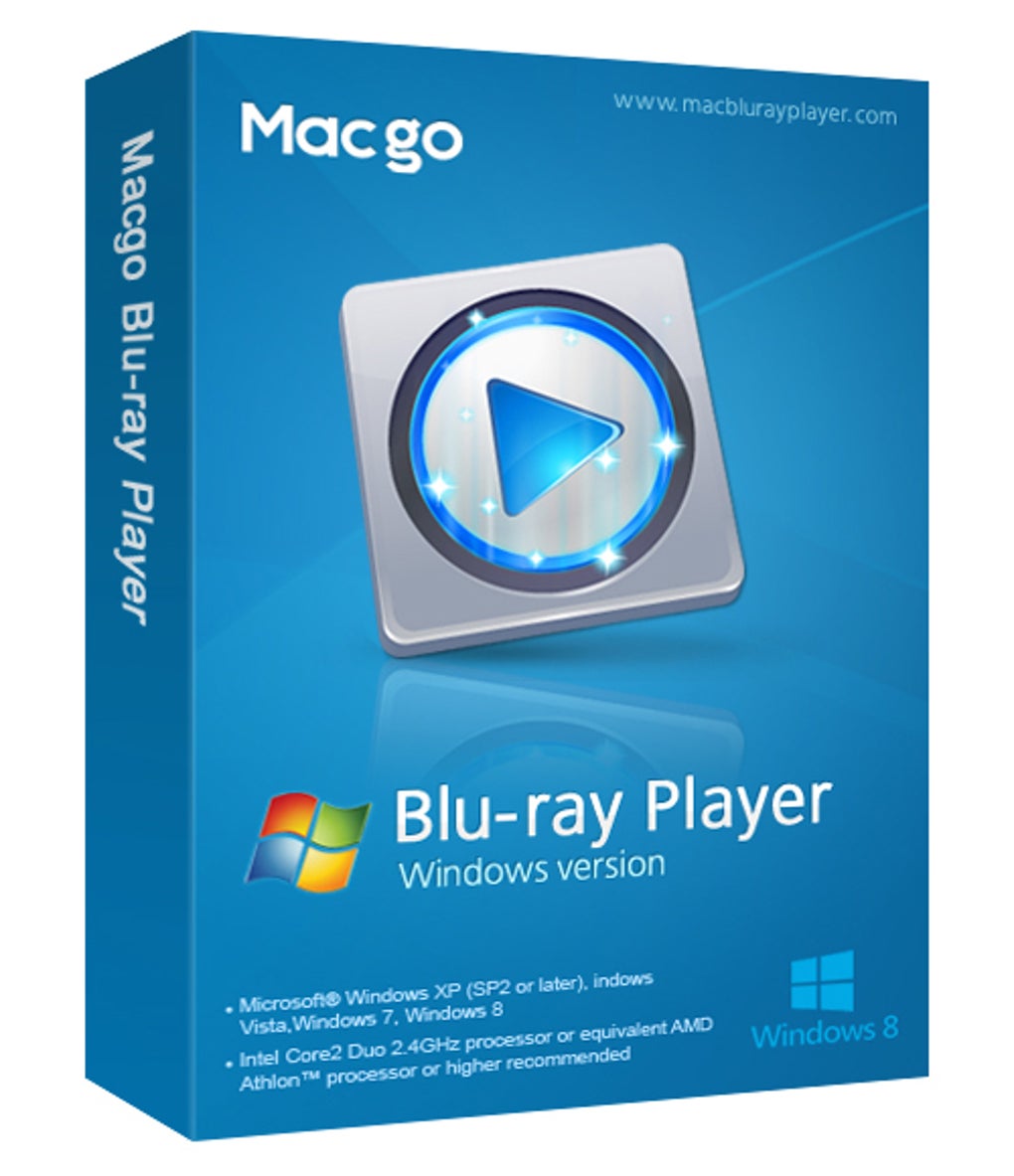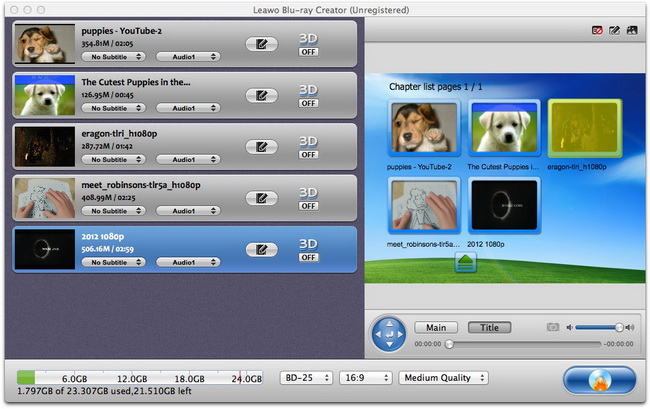

This allows libaacs to skip directly to step 3. Thankfully, in case no valid Processing key is available and/or the Host certificate has been revoked, libaacs has an alternative way to decrypt a disc: by providing a valid VUK in the KEYDB.cfg file. The advantage of this method is that until the Host key/certificate is revoked, and as long as the disc uses an MKB version for which the Processing key is known, libaacs is able to compute the VUK of any disc.
#Leawo blu ray player main title menu software#
This is usually irreversible and can only be fixed by providing a more recent Host key/certificate (for Windows users, this corresponds to updating their software player). Once revoked, a drive is not able to read both new and older discs. However, the Host key/certificates are regularly revoked through the propagation of new Blu-ray discs. If libaacs finds a valid processing key for the disc MKB version as well as a valid Host key and certificates, it can start the decryption process from step 2. Non revoked by the drive) Host key/certificate
#Leawo blu ray player main title menu update#
Host key/certification revocation occurs when a newer disc (containing a higher MKB than the previous played disc) is decrypted, or played, or attempted to decrypt or play (the mere insertion of a disc does not update the drive). The software player provides the Host key and certificate, whereas the drive contains a list of the Host key/certificates that have been revoked. The latest MKB is version 70, and many discs actually share the same MKB. MKBs have been renewed since the first commercial Blu-ray release in 2006. Note that it is the disc that contains the MKB.

This project does not offer any key or certificate that could be used to decode encrypted copyrighted material. Libaacs is a research project from the VideoLAN developer team to implement the Advanced Access Content System specification, and distributed as an open-source library. Many articles and research papers describe it in detail at, or. The AACS specification and decryption process are publicly available at. Although the industry was able to revoke the first leaked decryption keys, new keys are regularly published in a cat and mouse play. Many decryption programs were made available, but the interest to Linux users was the capability of playing their discs - legally purchased - on their computers. In 2007, the AACS system was compromised and decryption keys were published on the Internet. Although most of commercial discs use AACS, a few of them additionally use BD+.

Secondly, Blu-ray may also use another layer of protection: BD+. Firstly, the AACS standard uses a lot more complicated cryptographic process to protect the disc content, but also allows the industry to revoke compromised keys and distribute new keys through new discs. 2.5.4 If you have the corresponding VUK but the Blu-ray will not playĬontrary to the DVD CSS, which was definitely compromised once the unique encryption key had been discovered, Blu-ray uses stronger DRM mechanisms, which makes it a lot more difficult to manage.2.5.3.1 If aacskeys is not able to generate the key.2.3.2 Decrypting using PK and Host K/C (step 3.2.2).


 0 kommentar(er)
0 kommentar(er)
